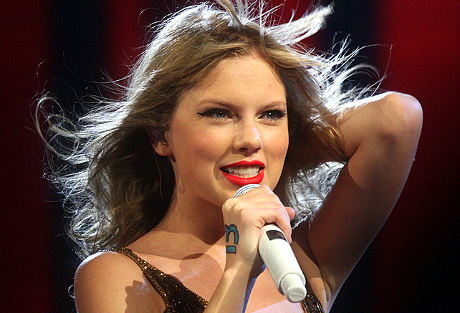Blog

Much to the outrage of ‘Swifties’ worldwide, it has recently been revealed that 25-year old mega-star Taylor Swift is being sued for $42m (£27m) over the lyrics of her 2014 hit single ‘Shake It Off’.
The challenge comes from Jesse Braham, a 50-year-old R&B artist who goes by the stage name ‘Jesse Graham’, who in 2013 wrote the song ‘Haters Gonna Hate’, a slow jam for his album Sexy Ladies.
The artist claims that without his song, Taylor’s hit ‘Shake It Off’, that has since gone eight times platinum, would never have existed. Oh, the horror.
The concept of originality is an age-old conundrum. Anyone who has studied literature, is a music fan, or has ever tried to create anything knows that absolute ‘originality’ is nigh impossible, as the factors that inspire an artist naturally filter through into their work.
Intellectual property law, known as IP law, deals with this issue of originality in all its forms, governing the ownership of ideas and inventions in both tangible and intangible concepts.
As competitive commercial environments grow ever more saturated by bright minds and great ideas, IP lawyers play an increasingly integral role in 2015.
When speaking to the New York Daily News, Braham argued there was just “no way” that Swift's lyrics could have been thought up independently. He continued: “Her hook is the same as mine... If I didn’t write the song ‘Haters Gone Hate,’ there wouldn’t be a song called ‘Shake It Off.'”
He goes on to note that Swift uses the disputed phrases over 70 times in her song. As observed by the media and members of the public alike, the songs have no resemblance melodically. However, unquestionably, the lyrics of the hook are remarkably similar.
The lyrics to the chorus of Braham’s song run: "Haters gone hater, playas gone play/ Watch out for them fakers, they'll fake you everyday."
The chorus to ‘Shake It Off’ runs: "Cause the players gonna play, play, play, play, play/ And the haters gonna hate, hate, hate, hate, hate." Then later in the song, "And the fakers gonna fake, fake, fake, fake, fake."
It has been reported that in a bid for compromise, Braham contacted Sony and Big Machine (TayTay's management) to be credited as a co-writer of the song and for a selfie with Swift. Currently, the credited writers are Swift, Max Martin and Shellback.
Being credited as a writer would have inevitably resulted in an extremely large pay-out and a very large amount of exposure for Braham. However, he was told that his claims had no validity and his requests were dismissed. It was only following this rebuttal that he decided to launch legal proceedings.
There are various ways to protect creative ownership, the most common methods being copyrights, trademarks and patents. As in almost all areas of law, issues can be contentious or non-contentious and settled outside court.
What Swift is dealing with is a contentious copyright lawsuit, where the challenger alleges that she has plagiarised the lyrics from his song.
The question that everyone is asking is: does Braham have a leg to stand on? Recently there have been a number of huge copyright disputes within the music industry, most notably regarding the hits ‘Blurred Lines’ and ‘Uptown Funk’.
It is rare that music copyright disputes make it to court, but in the instance of ‘Blurred Lines’, the jury ordered that the songwriters pay $7.4m to the estate of Marvin Gaye.
Following this, the writers of ‘Uptown Funk’ settled claims to the phrase ‘Don’t believe me just watch’ in the song out of court for fear of a similar result. They agreed to add two extra songwriters, including Trinidad James, to the credits.
David Zook, who manages Trinidad James said: "Everyone is being a little more cautious. Nobody wants to be involved in a lawsuit. Once a copyright dispute goes to a trial, [if a jury is used], it is subject to be decided by public opinion -- and no longer resolved based entirely on copyright law."
Braham’s lack of official legal representation indicates the caution with which IP lawyers regard such high-profile cases.
A member of the legal profession told TMZ: "Mr. Braham, who is representing himself, cannot claim copyright protection for the phrases "haters gone hater" and "playas gone play" because the Copyright Act does not protect short phrases and these phrases are not original to him. In addition, and most damning to Mr. Braham's claim, the two songs have absolutely nothing in common."
Whether Swift will manage to shake off this lawsuit remains to be seen. However, with Braham representing himself - and the general consensus that his case is weak - the outlook is hopeful.
Either way, there is now bad blood between the two artists and Braham has laid himself open to countersuit from Swift over potential damage to her reputation as a music artist.
Academy tools to help you get a job
-

Free Watson Glaser Practice Test
Understand the test format, compare your performance with others, and boost your critical thinking skills.
